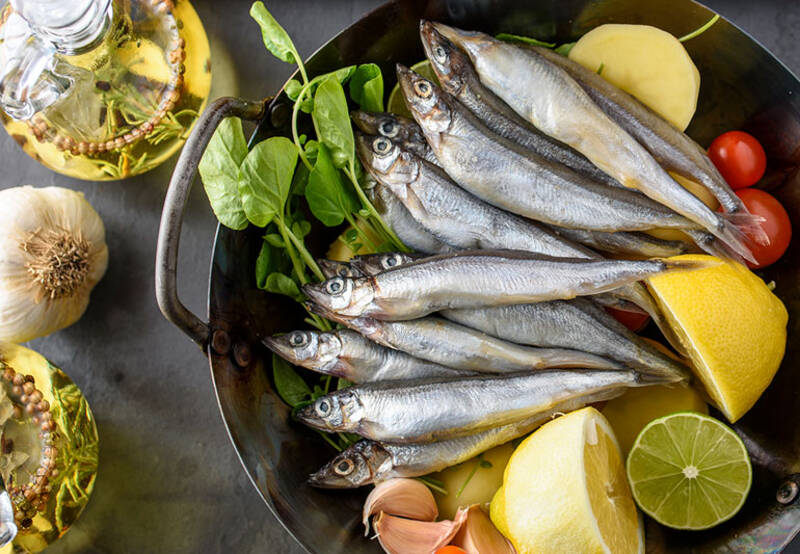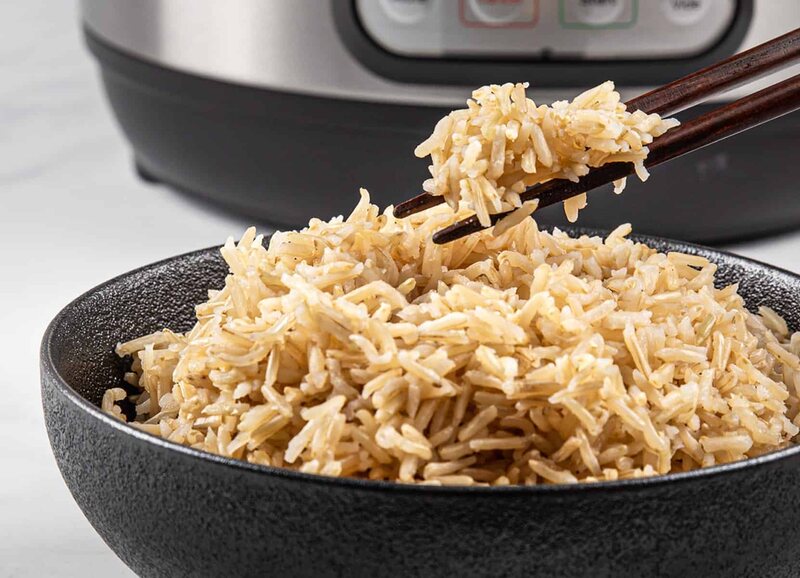Unlocking the Power of Selenium in Your Diet
Feb 09, 2024 By Madison Evans
Incorporating selenium-rich foods into your diet offers profound health benefits. This vital trace mineral plays a crucial role in various bodily functions, from supporting the immune system to acting as an antioxidant powerhouse. Through this article, you’ll explore the top 8 selenium foods but also delve into their nutritional values. Furthermore, we will provide you with some delectable recipes that are surefire enhancers of your overall well-being.
1. Brazil Nuts:
Renowned for their remarkably high selenium content, Brazil nuts are nutritional powerhouses. A daily consumption of just a few easily fulfills your selenium requirements. Yet, you must exercise caution, excessive intake could potentially induce selenium toxicity. Brazil nuts, rich in healthy fats, fiber, and a variety of minerals like selenium offer a wholesome addition to your diet.
Brazil nuts, in addition to their selenium prowess, serve as an excellent source of antioxidants. Specifically, they contain selenium-bound compounds that significantly contribute to overall health. These potent antioxidants neutralize harmful free radicals within the body. Thus, potentially diminishing the risk of chronic diseases. Whether you enjoy them as a snack or incorporate these nutritional powerhouses into your meals, harnessing their beneficial qualities is easy with Brazil nuts.
- Caution: While Brazil nuts are a fantastic source of selenium, it's crucial to be mindful of their high selenium concentration. Consuming too many Brazil nuts can lead to selenium toxicity, causing symptoms like nausea, diarrhea, and hair loss.
- Fun Fact: Brazil nuts are not technically nuts but rather seeds from the fruit of the Brazil nut tree. Their unique composition adds to their nutritional appeal.
2. Sunflower Seeds:
Sunflower seeds, petite but packed with nutrients, provide more than just a selenium boost. They can be integrated into your diet via salads and yogurts or relished as an independent snack. In addition to their selenium content, these seeds boast abundant vitamin E, a potent antioxidant that enhances skin health and bolsters the immune system.
Sunflower seeds, in addition to their role as a selenium powerhouse, provide an excellent source of magnesium. It’s a mineral that critically influences several bodily functions such as muscle and nerve function, regulation of blood sugar levels, and bone health. Your diet's inclusion of sunflower seeds not only amplifies your selenium intake but also fosters overall well-being.
- Consideration: Opt for unsalted sunflower seeds to avoid excess sodium intake and fully enjoy the nutritional benefits.
- Did You Know: Sunflower seeds are a good source of plant-based protein, making them an excellent option for vegetarians and vegans.
3. Fish (Tuna, Halibut, Sardines):
Tuna, halibut, and sardines are rich sources of omega-3 fatty acids providing seafood enthusiasts with a reason to celebrate. Not only that, they also excel as selenium providers. Your taste buds will tingle from the tantalizing flavors of grilled or baked fish dishes, an excellent way to maximize your selenium intake.

Prized for their omega-3 fatty acids and selenium content, we hold fatty fish such as tuna and sardines in high regard. These crucial fats specifically aid heart health and diminish inflammation, ultimately bolstering cognitive function. By consistently consuming fish, you secure a dual benefit for your well-being. Intake of selenium along with essential omega-3s.
- Note: Choose wild-caught fish when possible to minimize exposure to contaminants and maximize nutritional benefits.
- Pro Tip: Canned sardines, a convenient option, are equally nutritious and provide a quick selenium boost to salads or sandwiches.
4. Turkey:
Opting for lean turkey, you not only introduce a protein powerhouse to your meals but also infuse them with a healthy dose of selenium. Whether it's roasted turkey breast or ground turkey integrated into diverse recipes, the result remains an enriching and nutrient-packed element.
Turkey, in addition to serving as a source of selenium, provides an excellent supply of B vitamins, specifically B6 and niacin. These vital catalysts play crucial roles. They promote energy metabolism, support the nervous system, and ensure overall skin health. Your diet must include lean turkey for its capacity to balance your intake of essential nutrients.
- Cooking Tip: Roast turkey with a variety of herbs and spices to enhance flavor without relying on excessive salt or unhealthy fats.
- Did You Know: Turkey contains tryptophan, an amino acid that contributes to the production of serotonin, promoting a sense of well-being and relaxation.
5. Chicken:
Many consider chicken a dietary staple. Not only does it serve as an excellent source of protein, but it also provides ample selenium which is a vital mineral. To ensure your daily selenium requirements are met, opt for lean, skinless cuts of this versatile meat.
Chicken, in addition to its selenium content, serves as a versatile protein source that supplies an array of essential nutrients, ample amounts of phosphorus which is a crucial mineral for bone health, and vitamin B3 (niacin) which is integral for energy metabolism. When you incorporate chicken into your meals, it introduces not just selenium but also a diverse range of overall health-promoting nutrients.
- Preparation Tip: Grilled or baked chicken is a healthier choice compared to fried options, preserving its nutritional value.
- Nutrition Boost: Chicken breast, in particular, is low in fat and calories while being rich in protein, making it an ideal choice for those watching their weight.
6. Eggs:
Known for their versatility, eggs serve as not only a protein source but also bolster your selenium intake. You can enjoy them scrambled, boiled, or in an omelet. These preparations provide valuable enhancement to your overall selenium consumption.
Eggs are rich in choline, an essential nutrient for brain health. Indeed, they play a crucial role in neurotransmitter production and regulate memory as well as mood. Thus, besides supporting selenium needs, including eggs in your diet supports cognitive function too.
- Egg Fact: The selenium in eggs is present in the form of selenoproteins, which play a role in antioxidant defense and thyroid hormone metabolism.
- Tip: Opt for eggs from pasture-raised or omega-3-enriched sources for an extra nutritional punch.
7. Spinach:
Spinach, an excellent leafy green rich in selenium, stands out for vegetarians seeking this essential mineral. Its versatility allows it to be added not only to salads and smoothies but also to various cooked dishes. Thus, offering a plethora of health benefits beyond just being a source of selenium.
In addition to selenium, spinach provides a rich source of iron. It’s an essential mineral for the body's oxygen transportation. If you include spinach in your diet, particularly crucial for those following vegetarian or vegan diets, you can prevent iron deficiency anemia. Thus, embracing the versatility of spinach serves as a nutrient-packed addition to your meals.
- Iron Absorption: Pairing spinach with vitamin C-rich foods, like citrus fruits or bell peppers, enhances iron absorption from plant-based sources.
- Fun Fact: Spinach belongs to the amaranth family and is classified as a dark, leafy green vegetable with high nutritional value.
8. Brown Rice:
Brown rice, a healthier alternative to white rice, not only provides essential nutrients but also boasts selenium content. Switching from white to brown rice elevates your meals' overall nutritional value.

Brown rice, in addition to being a significant source of dietary fiber, provides selenium. This supports digestive health and promotes satiety. The high fiber content present in brown rice aids in the regulation of blood sugar levels, potentially lowering the risk for type 2 diabetes. By making brown rice a staple part of your meals, you introduce both selenium and fiber into your diet, an advantageous choice indeed.
- Fiber Content: Brown rice retains the bran layer, which is rich in fiber, making it a heart-healthy choice.
- Cooking Tip: Soak brown rice before cooking to improve its digestibility and nutrient absorption.
Understanding Nutrition Data:
Let's now delve into the nutritional data of the aforementioned selenium-rich foods. For adults, a recommended daily intake of approximately 55 micrograms is advised. However, moderation becomes crucial when considering Brazil nuts. They boast impressive content with a concentration as high as 544 micrograms. A 1-ounce serving of sunflower seeds significantly contributes to your daily needs, offering approximately 30 micrograms. Similarly, certain fish like tuna, halibut, and sardines provide variable amounts. The serving size of these can range from 40–65 micrograms per three ounces.
Around 30 micrograms per 3.5-ounce serving, that's the contribution of lean turkey and chicken. Meanwhile, each egg provides approximately 15 micrograms. A cup of cooked spinach which is a plant-based source contains about 11 micrograms. Offering a nutrient-rich alternative to white rice, one cup of brown rice contributes approximately 19 micrograms. Ensure that you meet your nutritional needs and avoid surpassing recommended limits by carefully balancing the inclusion of these selenium-rich foods in your diet.
- Selenium Bioavailability: The body absorbs selenium more efficiently from animal sources than plant sources, emphasizing the importance of a well-rounded diet.
- Caution: Regularly consuming selenium supplements alongside selenium-rich foods may lead to excessive selenium levels, posing health risks.
Delicious Recipes to Boost Your Selenium Intake:
You are now proficient in identifying the top selenium-rich foods. We can explore creative and nutritious recipes that utilize these culinary treasures: Begin your day with an enticing Brazil Nut Granola, a fusion of Brazil nuts' selenium-rich benefits, oats, honey, and select dried fruits. To add a savory variation to it, attempt Sunflower Seed Pesto which is an amalgamation of sunflower seeds, basil garlic, and olive oil that creates a delectable sauce for pasta or salads. For a selenium-rich lunch option, seafood enthusiasts can relish the Sardine Salad Bowl. This is a delectable mixture of fresh vegetables, sardines, and light dressing.
Mix lean ground turkey with selenium-rich spinach in a Turkey and Spinach Stuffed Peppers recipe for an experimental, wholesome dinner. Incorporate eggs and your favorite veggies into a Selenium-Packed Omelet. This will provide you with not only delicious flavor but also the diverse health benefits of selenium at breakfast or brunch, quickly! These recipes ensure satisfaction and they tantalize taste buds while promoting wellbeing through varied consumption of selenium.
- Cooking Variety: Experiment with different spices and herbs to enhance the flavors of these recipes while keeping them low in added salt and unhealthy fats.
- Balance Matters: While indulging in these recipes, ensure a balanced diet with a variety of nutrients from other food groups for overall well-being.
Conclusion
Incorporate selenium-rich foods into your diet. This simple yet impactful action enhances overall health. Understand the nutritional data and explore delicious recipes of the top eight selenium foods. These choices promote well-being through a balanced, flavorful regimen.








